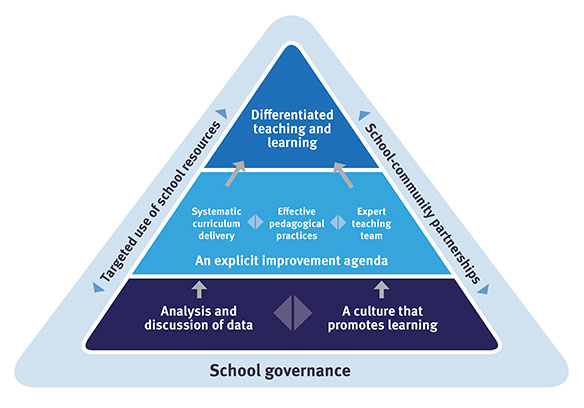Reviews and School Improvement (RSI) monitor and support school performance and improvement through the administration of school reviews.
School reviews are an important part of each school’s planning and improvement cycle. Along with other processes, they help inform and complement the work of the school in leading continuous improvement and quality learning outcomes for children and young people in Queensland, and a progressive, high performing education system that realises the potential of every student.
While reviews are paused in 2026, RSI will consult with stakeholders to shape the future of reviews in Queensland state schools. Through consultation the department will consider how reviews can be further targeted to maximise their impact on school and system improvement.
The school review
joint statement from the Department of Education and the Queensland Teachers' Union outlines the process and commitment to continuous improvement in Queensland state schools.
For further information
contact RSI.
School Improvement Hierarchy

Based on the Australian Council for Educational Research (ACER) (2023). School Improvement Tool.
The School Improvement Hierarchy model image depicts a baseline of assurance and school governance incorporating analysis and discussion of data, paired with a culture that promotes learning. These contribute to driving an explicit improvement agenda.
Building on the agenda are leading systematic curriculum implementation, implementing effective pedagogical practices, and building an expert teaching team. Differentiated teaching and learning is at the model's apex.
Integral to the model's delivery are targeting school resources and building school-community partnerships. These are represented as arrows travelling from the baseline of the model to its apex.